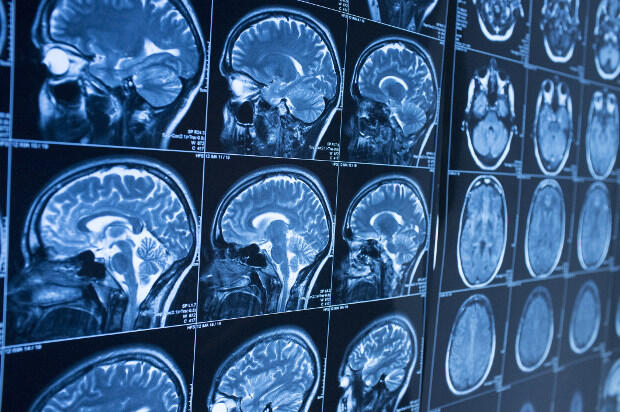
Dec. 6, 2018
VCU completes enrollment for national study on childhood brain development
Share this story
The National Institutes of Health announced this week that a 21-member research consortium including Virginia Commonwealth University has completed enrollment for the Adolescent Brain Cognitive Development Study — the largest longitudinal neuroimaging study of human brain development ever launched. The landmark study on brain development and child health is increasing the understanding of environmental, social, genetic and other biological factors that affect brain and cognitive development and can disrupt a person’s life trajectory.
Nationwide, there are 11,874 youth ages 9-10 participating in the study, including 2,100 young people who are twins or triplets. All will be followed into young adulthood. At VCU, primary investigators James Bjork, Ph.D., associate professor in the Department of Psychiatry and the VCU Institute for Drug and Alcohol Studies, and Michael Neale, Ph.D., professor of psychiatry and behavioral genetics at the Virginia Institute for Psychiatric and Behavioral Genetics, have led the enrollment of 215 pairs of twins plus 122 non-twins. Baseline data from all study participants will be released in early 2019.

VCU is one of four study sites selected to recruit twins to yield clarification on hereditary and environmental influences on brain development. The Mid-Atlantic Twin Registry, housed with the VCU Office of Research and Innovation, is the largest twin registry in the United States.
“This is a very high quality and rich data set that is available to social and biological scientists across the globe to be able to answer questions about development with definitive sample sizes,” Bjork said.
Bjork and his consortium colleagues have selected a blend of cognitive tasks for children at all study sites to perform at each annual visit. The tasks measure mental performance and reactions of the brain to motivation, memory, demands for self-control and even the brain at rest. MRI scans that will detect changes in brain structure and function are performed at the VCU Collaborative Advanced Research Imaging facility. The facility, which operates under the aegis of the C. Kenneth and Dianne Wright Center for Clinical and Translational Research, houses the new research-dedicated MRI scanner where the brain scans take place. Parents also participate in psychiatric interviews about the enrolled child, as well as answer questionnaires about the child’s academic achievements, behaviors and other life-history factors.
The study holds the potential to expand on current understandings of both normal and atypical brain development across human adolescence and contribute to the treatment of mental health disorders.
“If we are able to keep contact with these children and their families as they move into young adulthood, we can look back and see what the brain of a person destined for schizophrenia, anxiety disorder and depression looked like at age 10 compared to a neurotypical brain,” Bjork said. “We are collecting these measures over time with cutting-edge technology that enables us to observe, to a great degree, change and differentiation in brain development.”
Subscribe to VCU News
Subscribe to VCU News at newsletter.vcu.edu and receive a selection of stories, videos, photos, news clips and event listings in your inbox.












